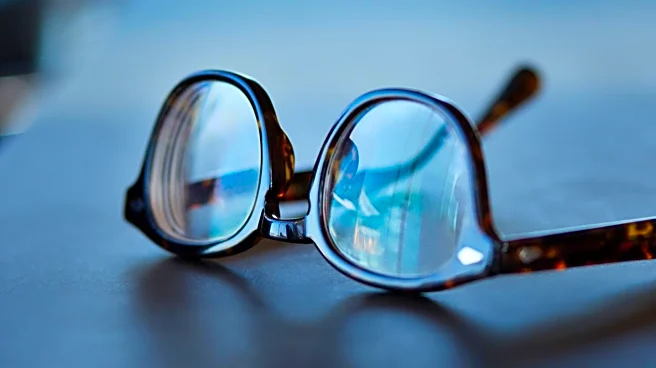What's Happening?
A study presented at the European Society of Cataract and Refractive Surgeons in Copenhagen suggests that eye drops containing pilocarpine and diclofenac could replace glasses or surgery for longsightedness. The study involved 766 participants in Argentina who used the drops twice daily. Results showed significant improvements in near vision, with many participants able to read additional lines on eye test charts. The treatment offers a potential alternative for those seeking freedom from glasses or unable to undergo surgery. Side effects were minimal, including temporary dim vision and irritation.
Why It's Important?
This development could revolutionize the management of presbyopia, a common condition affecting millions worldwide. The eye drops provide a non-invasive, convenient solution for improving near vision, potentially reducing reliance on corrective lenses or surgery. This advancement could benefit individuals who find glasses inconvenient or are ineligible for surgical options. The treatment's success could lead to broader adoption and further research into similar non-invasive therapies, impacting the ophthalmology field and patient care.
What's Next?
Further studies are needed to confirm the long-term safety and effectiveness of the eye drops. Broader, multi-center trials could provide more comprehensive data and support regulatory approval. If successful, the treatment could become widely available, offering a new option for managing longsightedness. Continued research may explore additional applications for the drops or similar formulations, potentially expanding their use in vision correction.










